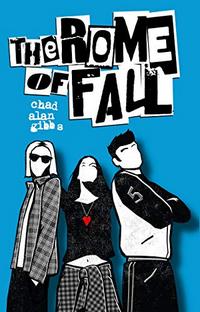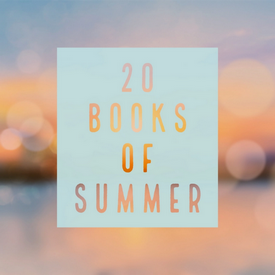 |
The Rome of FallPaperback, 260 pg. Read: August 15-17, 2020 |

During the tenth month of the year of our Lord nineteen hundred and ninety-four, as foretold in the book of Garth, the gods unleashed a plague upon Rome. Not a plague of frogs, or lice, or locusts—those would have been fine. The Coosa River did not run red with blood—that would have been okay, too. No, the gods were not messing around that October, and they blighted our fair town with a pestilence of heel, toe, do-se-dos that seemingly afflicted everyone in school but Jackson and me. Like a zit, Dixie Dancehall & Taxidermy materialized overnight, filling the void of Main Street cruising with, perhaps, the worse recreational activity in the history of human recreation: Country. Line. Dancing.
What’s The Rome of Fall About?
If you’ve ever asked yourself what would a Julius Caesar fanfic told through the prism of High School Football and 90s Rock look like, have I got a book for you…
Marcus Brinks spent the first semester of his senior year as a new student in Rome, Alabama before moving back to Texas with his father. To say that that semester was radically life-changing is to misunderstand both terms. Twenty-three years later, he returns to Rome to care for his dying mother, and to teach English at his old High School. In the intervening years, Brinks had fronted a very successful 90s indie band (for one album and an aborted tour, anyway), graduated from Harvard, and then spent sixteen years living on a beach in Jamaica, coasting on the fading fumes of his fame.
In 1994, Brinks had been befriended by Jackson and Silas. Jackson was a third-string QB with delusions of grandeur and a gift of gab (and brag, come to think of it). Silas was a white kid obsessed with gangsta rap who dreamed of coaching football—he couldn’t play, as he was on crutches due to Muscular Dystrophy—but he understood the game better than Jackson (or many others) ever could and with a passion that surpassed theirs, too. All of them were the victim of bullying by Deacon, the first string QB, who was as arrogant as only starting football stars can be. Jackson and Silas had a plan to bring Deacon down and disgrace him, but Brinks didn’t want to go along with it—until Deacon beats him up for the crime of being friends with Deacon’s girlfriend, Becca.
* And, we might as well be honest, Brinks wants to be a lot more than friends with her.
In 2017, Becca teaches at the middle school, Jackson’s the High School Football coach, and is pretty much the town’s biggest celebrity. Silas is now wheelchair-bound, and is his offensive coordinator. Something happened between Jackson and Brinks and they haven’t spoken in decades, and Brinks has no intention of breaking that streak. Deacon is a pretty successful local businessman, jealous of Jackson’s status, and is determined to bring him down (and wants Brinks to help). Oh, and adult Brinks can’t help himself and is determined to be a lot more than friends with Becca this time.
We bounce back and forth between the timelines, seeing both how Jackson, Silas, and Brinks plot against Deacon—and what drove them all to it. While eventually, we figure out what drove the rift between Jackson and Brinks, why Deacon and Brinks almost get along, and why they (and others) are plotting against Jackson. Mix in some high school fun, some good times with friends, a budding and rocky romance (in both timelines), some good 90s music nostalgia, a little teaching humor, and a whole lot of heart—and this becomes a novel that’s almost impossible to put down and that’ll hit you on several emotional levels at once.
All the characters are familiar at once, yet feel like Gibbs was one of the first to write about High School sports and those who aren’t part of the Team. Their adult versions all feel like genuine extensions and evolutions from who they were in High School. I’d have enjoyed hanging out with everyone but Deacon in High School and in 2017, I think I could’ve had fun with Brinks, Silas, and Becca. And at times the book almost makes you feel like that’s what you were doing. The relationship between Brinks and his mother was one of the best parts of this book, providing mirth and pathos. I’d likely recommend the book based only on the strength of it—and really, it’s not that important to the book overall.
Talking about the Julius Caesar of it All
On the one hand, Gibbs isn’t even a little bit subtle about the novel being a cover* of Shakespeare’s Julius Caesar, occasionally, maybe even going over the top with it. That said, there were a couple of references that I didn’t pick up on right away, and then felt really dense a few pages/chapters later when I stopped myself to flip back and re-read a little bit.
* Given the general rock music vibe that permeates this novel, I figure I should stick with music terminology whenever I can.
I grant you, it’s been decades since I last read the play (I think it’s one of the two Shakespeare plays I’ve read recreationally and for school), but I think Gibbs nailed it. He got all the major and many of the minor details right while keeping the whole thing feeling fresh and new. Frequently I thought the way he worked things in was pretty clever and unexpected.
What if you’ve never read/watched the play, will you be lost? Nope. It won’t matter at all to you. But if you have, you’ll appreciate the whole thing on another level.
The Little Things…
As with so many areas of life, it’s the little things that move a book from good to memorably entertaining. Yes, there are a lot of funny scenes, moments, and characters in The Rome of Fall, but Gibbs nails the little things in the narration. Things that don’t move the plot forward, or even really reveal much about Brinks or anyone else—but they add just the right bit of flavor to the book.
A non-exhaustive list of examples includes the aforementioned Line Dancing (it gets better from there) scenes, a nice bit about an overcooked steak, Brinks’s theories about things invented by bored teens in Rome, a line about armed teachers, and almost every conversation between Brinks and his mother that doesn’t advance the plot.
So, what did I think about The Rome of Fall?
“Okay, maybe I wasted some of my life, but people do still talk about our band. If we’d followed up with a bunch of shitty albums, no one would care anymore. But we didn’t, and they do. Not doing anything for the last twenty years wasn’t the worst career move.”
If Dear Brutus had been a real thing, I’d have left college before their album was released, and I might not have paid attention to them. But I’m close enough to the right age to remember the feel of that era of music and what those bands—especially of the indie/college rock variety—meant to their fans (yeah, it’s similar today, but with Spotify/Youtube, etc., it’s a little easier to connect with a band/their music than it was in the days of CDs and cassettes). A week or so before I read this book, a one-and-done band from about the same time that I loved launched a Kickstarter for a live album (recorded in the 90s). You wouldn’t believe how fast I contributed—me, and enough people to fully fund within a day—because of what emotions and memories that tapped into.
The Rome of Fall anchors itself in that feeling and then capitalizes on that to tell its stories. Really, the novel has nothing to do with the music of Dear Brutus. At the same time, it’s all about it. It’s about the ideas, the emotions—and the girl—that prompted Brinks to go all-in with his music, it’s about what the band’s dissolution did to him, and then what might lead to more of that music. I can’t say enough about that aspect of the novel.
Beyond that? Strip away the Shakespeare and music, and you have a charming and earnest story about High School and the way it shapes our lives, loves, friendships, and attitudes for the rest of our lives—and just what it takes to (maybe) shake them off. Failing that, how adults can channel the lingering effects of High School into both positive and destructive changes to their lives. It’s a strong novel that’s just a whole lot of fun (that sneakily works in some deeper material). Highly recommended.
N.B.: I won a copy of this book from the author in a giveaway on Witty and Sarcastic Bookclub and just wanted to take the opportunity to say thanks to both! You should probably also check out the post about the book on the site, it’s a good one.

This post contains an affiliate link. If you purchase from it, I will get a small commission at no additional cost to you. As always, opinions are my own.
![]()




 Grab a book, any book.
Grab a book, any book.